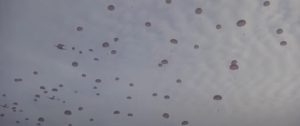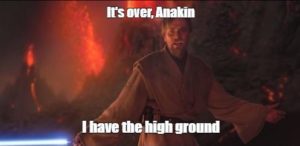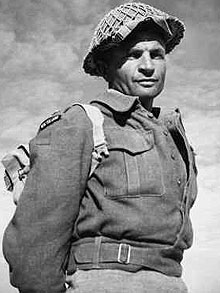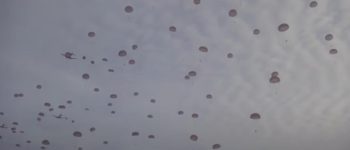1941: Operation Mercury
June 1, 2021
By AHNZ
 Today in New Zealand history, 1 June, 1941, New Zealand’s warriors surrendered the island of Crete to the Germans. Really it was all over by Day 2 of the Nazi’s invasion which they called ‘Operation Mercury.’
Today in New Zealand history, 1 June, 1941, New Zealand’s warriors surrendered the island of Crete to the Germans. Really it was all over by Day 2 of the Nazi’s invasion which they called ‘Operation Mercury.’
We called it massacring-lots-of-Germans-as-they-floated-down-to-earth-in-parachutes. The Krauts earned their victory with blood but they were always going to win. The way of States meant that thousands of men had to die on both sides to decide the mater. In an Anarchist world there would be no States to start wars, no tax farms infrastructure to covet. Many veterans of Crete found themselves questioning the meaninglessness of war.
 Once the Germans had the high ground, which they achieved on the second day of trying, all the New Zealand-led defenders could do was slowly retreat and painfully evacuate. For many, Trusting The State was their last mistake. Fresh from fighting, our men now had a harsh and thirsty trek to complete to make it to the evacuation point. Worse, upon arriving at the extraction zone many were turned away because there was no place for them on the exiting ships.
Once the Germans had the high ground, which they achieved on the second day of trying, all the New Zealand-led defenders could do was slowly retreat and painfully evacuate. For many, Trusting The State was their last mistake. Fresh from fighting, our men now had a harsh and thirsty trek to complete to make it to the evacuation point. Worse, upon arriving at the extraction zone many were turned away because there was no place for them on the exiting ships.
Dan Davin “…wrote a dark and vivid account of the unforgettable ordeal the New Zealand soldiers had to endure in their climb over the White Mountains, in Crete, to reach Sfakia for evacuation by the Royal Navy. In the event, thousands would be left behind on the beach to become prisoners of war.” – Tony Brunt, NZH&H (2019)
“For fresh men even in peacetime to cross this barrier would have been an exacting march. It came now as a cruel culmination to a battle which had ended in defeat; and not to be able to cross it was to become a prisoner. For two days and two nights men had been streaming over it, some crammed into the few vehicles that were still functioning, the rest marching, stumbling, and at times reduced to crawling on hands and knees. The natural savage grandeur of the mountain road was overprinted with the chaos of war. Every yard of the road carried its tale of disaster, personal and military. The verges were strewn with abandoned equipment, packs cast aside when the galling weight had proved too much for chafed skin and exhausted shoulders; empty water bottles; suitcases and officers’ valises gaping their glimpses of khaki linen and pullovers knitted by laborious love in homes that the owners might not live to see again; steel helmets half buried in the dust; all the grotesque and unpredictable bric-a-brac of withdrawal, the personal property treasured till it became an impediment and then discarded so that its owner could keep up with his desperate urge for life…”- A Fighting Withdrawal: The Life of Dan Davin, Keith Ovenden (1996)
 Perhaps we could have won if we shut off all the convenient entry points the Germans used to invade. Instead of trying (and failing) to hold the airfields we could have destroyed them. Boom. No more airborne invasion.
Perhaps we could have won if we shut off all the convenient entry points the Germans used to invade. Instead of trying (and failing) to hold the airfields we could have destroyed them. Boom. No more airborne invasion.
Why not? Because doing that would have injured the belief that we were not simply trapped rats stuck on an island with no escape. It would demonstrate that nobody had time and resources to throw a lifeline. We needed trooper, we got refugees fleeing Greece. We needed transport, communications, weapons, equipment. All we really had were Charles Upham and the Maori Battalion. The truth was, our warriors were trapped rats even if proving it would cost the deaths of thousands of German paratroopers.
Crete was supposed to be a connecting service for our troops to go to their proper next destination, Egypt. The next bus never came. Instead of admitting Crete was just a large life raft, Winston Churchill told them they were in charge of something real and could hold a real territory. You’re the “Creforce.” And, not to worry because this wasn’t just him talking, this was the Supreme Intelligence: “ULTRA Intelligence.”¹
No wonder there’s no movie about Operation Mercury. For the victorious Germans, it’s too bittered with slaughter and they learned not to use paratroopers this way again. For the Allies, it was another embarrassing defeat and a lesson about how great paratroopers were. Nobody wants to own either side of that story and dramatise it.
New Zealand failed everyone: The Greeks, the Cretens, the Australians, the British. Of the 3 airfields being defended it was the one in the charge of the New Zealanders, Maleme, that fell. We would have needed to counter-attack when it mattered with guts and glory but it could have been done. Instead, Crete was a lost cause following a similar embarrassing episode in Greece immediately preceding. If there’s one possible redeeming action the Kiwis performed it was to be the bodyguard escort to George II of Greece, safely delivering the totalitarian fascist ruler out of his country through Crete and away to Egypt.² Now that would make a good screenplay.
The Battle for Crete and the whole of New Zealand’s WW2 is ripe for an Anarchist revision.
—
1 Amazing how similar these terms are to the characters in Marvel Comics series: Captain Marvel. They have a Kree army too who are ruled by a ‘Supreme Intelligence’
2 Ref. Auckland Weekly News (1941), Auckland Libraries Heritage Collections
Image ref. Scene from A Bridge Too Far (1977)
 Like Comment Share
Like Comment Share






One thought on "1941: Operation Mercury"